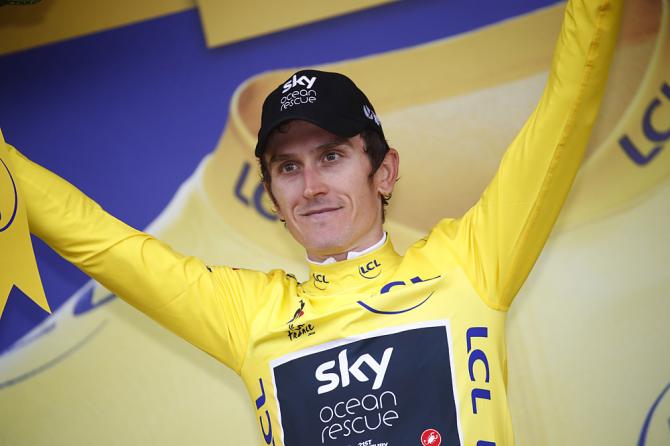A brief history of Team Sky
A timeline of the British team's evolution, controversies and contradictions
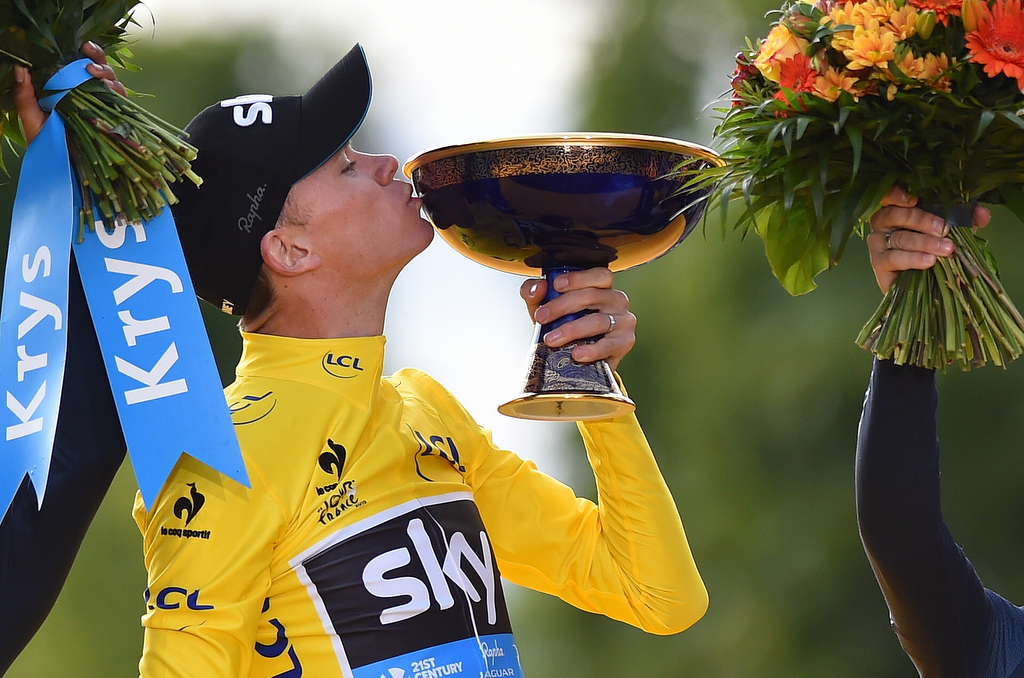
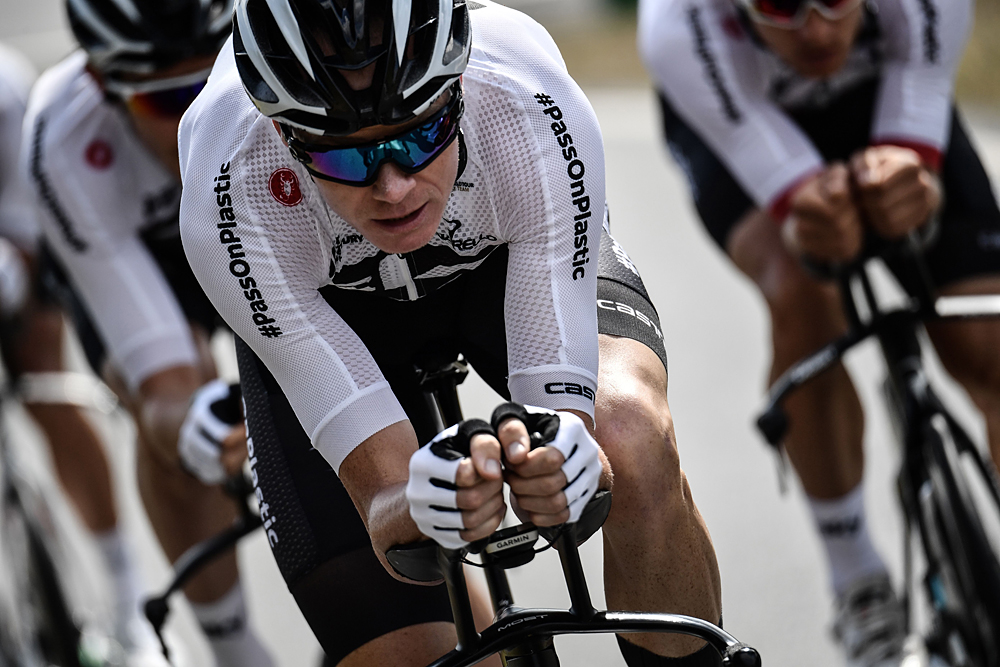
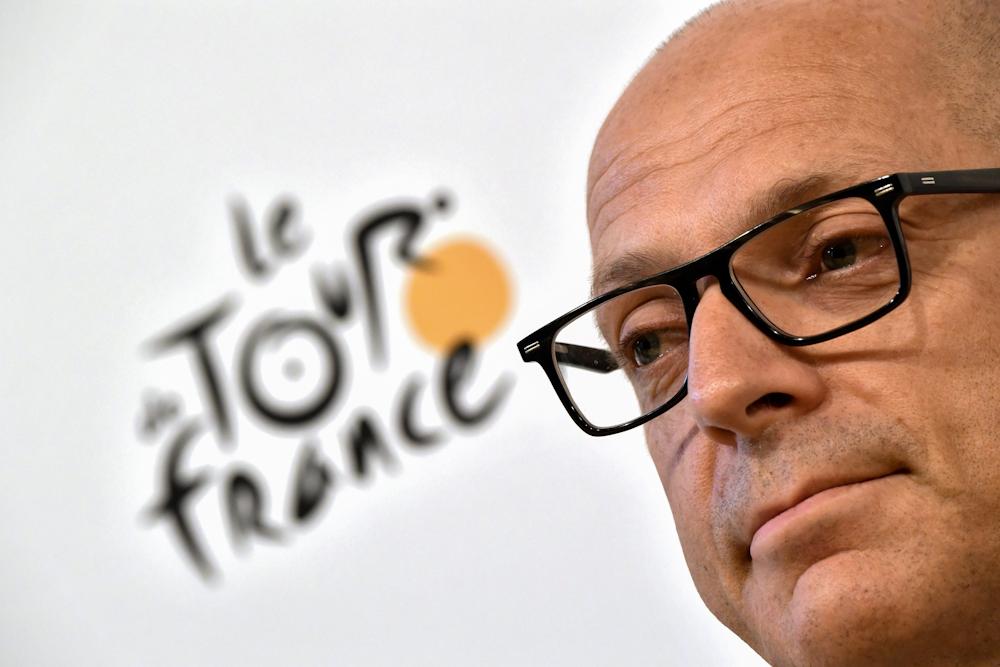
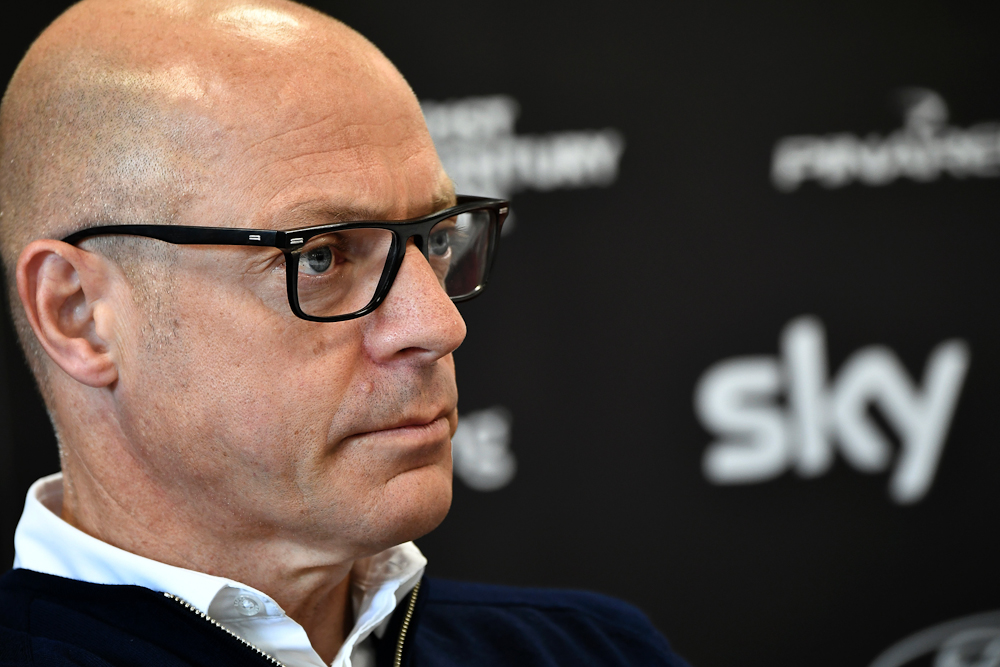
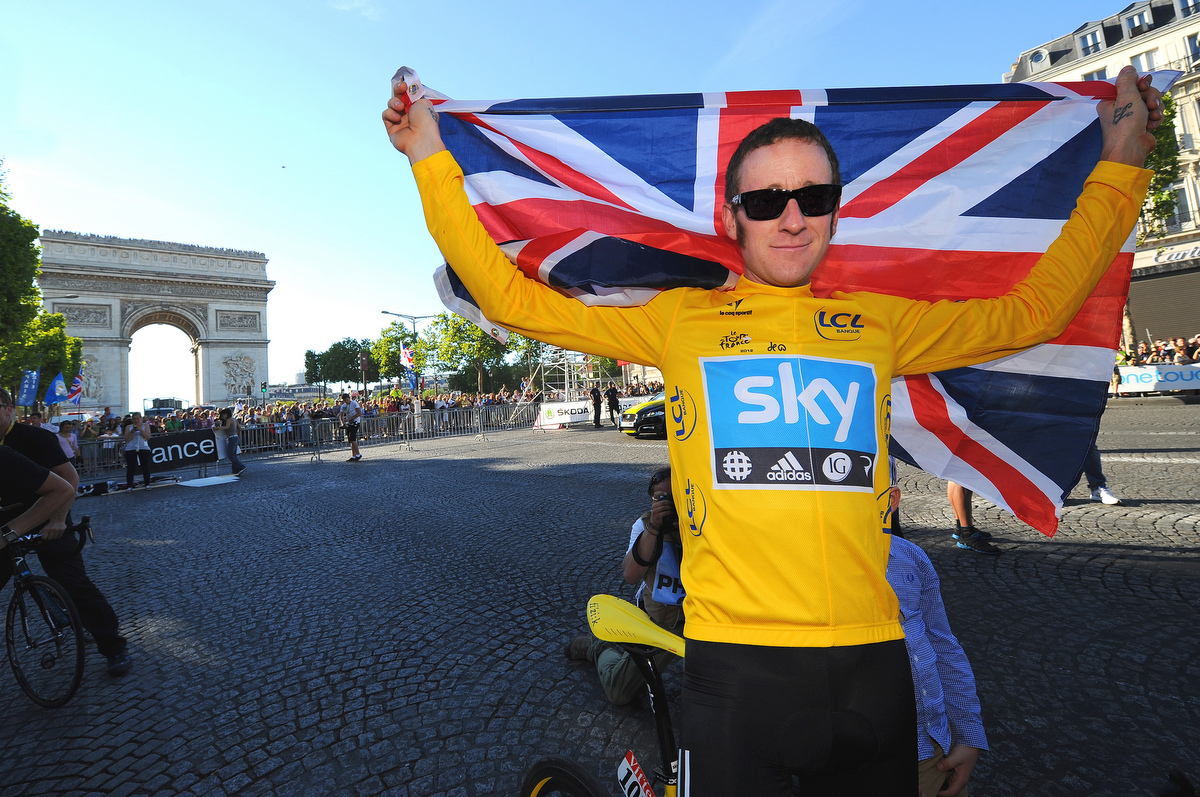
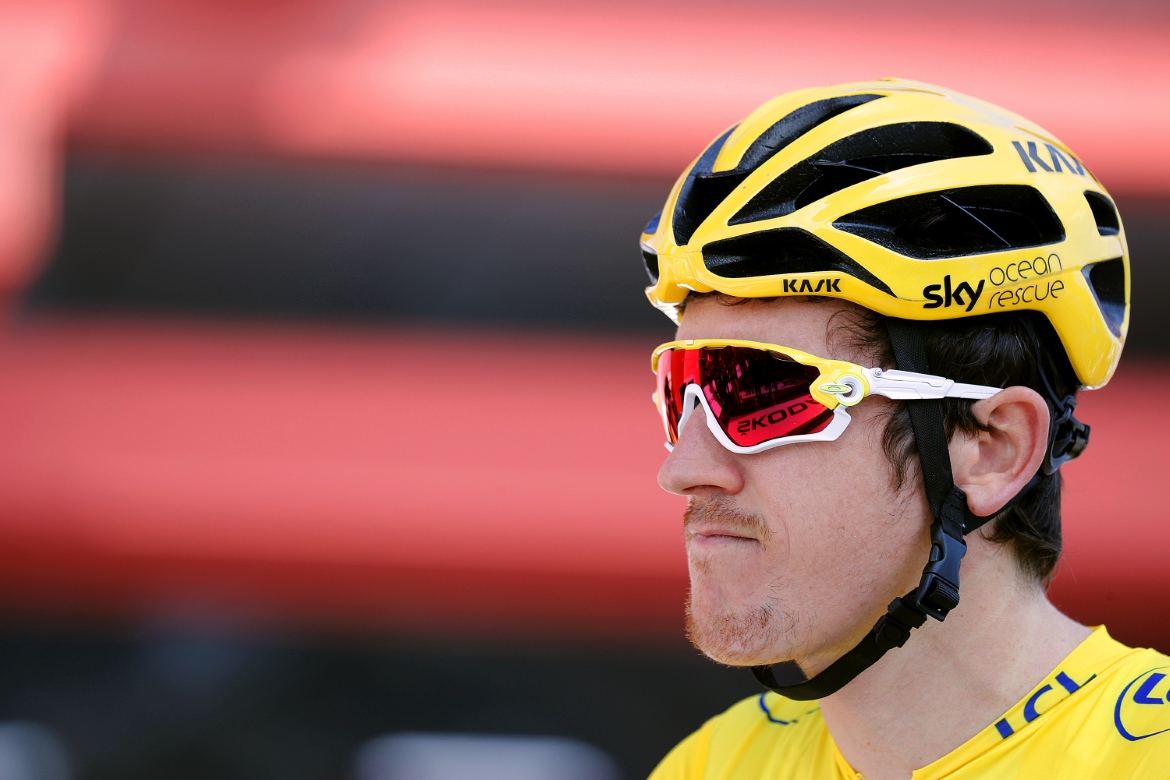
Following its success in the 2008 Olympic Games in Beijing, British Cycling unveiled plans to expand into the highest level of professional cycling, announcing the formation of Team Sky in early 2009.
Setting out the ambitious goal of winning the Tour de France within five years, the project set itself apart from other similarly lofty launches, scoring a strong crew of starters - including Chris Froome, Bradley Wiggins and Geraint Thomas - and operating under an improbable 'zero tolerance' anti-doping policy.
The team set out for their first season in 2010, with Greg Henderson securing their first victory in the Tour Down Under criterium. Wiggins then went on to win the prologue in the Giro d'Italia, and although the team's early Grand Tour GC performances were not stunning, the organisation showed promise.
- February 26, 2009 - Britons announce professional road squad
- September 9, 2009 - Team Sky unveils first six riders
- September 18, 2009 - Sky awarded four-year ProTour license
- November 21, 2009 - Team Sky reveals recruiting, management methods
- November 23, 2009 - Brailsford confident Team Sky can win clean
- December 10, 2009 - Bradley Wiggins signs with Team Sky
- December 15, 2009 - Team Sky announce two additional sponsors
- January 4, 2010 - Team Sky launched in London
- January 17, 2010 - Greg Henderson takes Sky's first win
- May 8, 2010 - Wiggins wins Giro d'Italia prologue
Edvald Boasson Hagen won the team's first Tour de France stage in 2011, and by the Vuelta a España, both Wiggins and Froome stood on the final podium, albeit behind overall winner Jose Cobo.
- February 15, 2011 - Brailsford analyses Sky's "zero tolerance" policy
- July 7, 2011 - Boasson Hagen wins team's first Tour de France stage
- November 11, 2011 - Froome, Wiggins podium in Vuelta a Espana
By 2012, Team Sky was flying, and Wiggins made the impossible dream of a Tour de France victory within five years come true in the squad's third season. He went on to win the Olympic gold medal in the individual time trial.
But the sport's foundations were about to undergo an upheaval when in October USADA published its Reasoned Decision, banning Lance Armstrong, and handing suspensions to six riders including ex-Team Sky rider Michael Barry, who had retired before the verdict could be announced.
Team Sky renewed their zero-tolerance stance, parting ways with a number of staff members and asking their riders and staff to sign new declarations on their past histories.
Get The Leadout Newsletter
The latest race content, interviews, features, reviews and expert buying guides, direct to your inbox!
- July 22, 2012 - Wiggins wins Team Sky's first Grand Tour
- August 1, 2012 - Wiggins wins Olympic gold
- October 9, 2012 - Leinders not renewed after Team Sky investigation
- October 12, 2012 - Newly retired Team Sky rider Michael Barry confesses to doping at US Postal
- October 17, 2012 - Team Sky asks riders and staff to sign anti-doping declaration
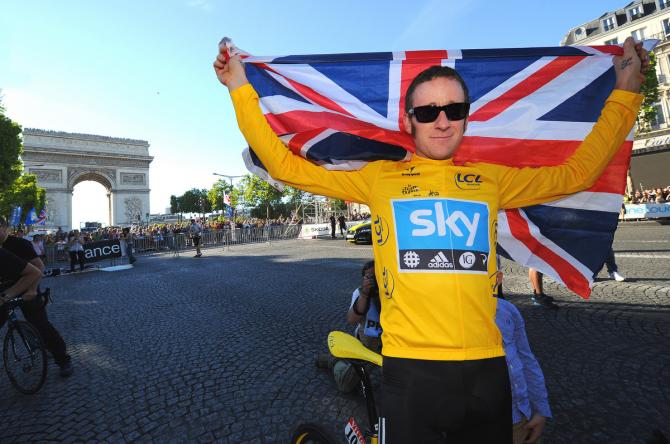
The 2013 season proved to be a rocky one, with whispers of in-fighting between Wiggins and Froome in the previous Tour de France. Wiggins opted to focus on the Giro d'Italia, but dropped out after stage 12 citing illness. Froome went on to win the 2013 Tour, confirming his Grand Tour prowess. But Froome was the unfortunate first Tour champion in the wake of Lance Armstrong's doping confession, and faced intense scrutiny by the public and press still stinging from the deception.
A bio passport violation from Jonathan Tiernan-Locke became the squad's first oping infraction, although the case dated from his time before joining Team Sky.
- May 17, 2013 - Wiggins pulls out of Giro d'Italia
- July 21, 2013 - Chris Froome wins Tour de France
- December 17, 2013 - UCI opens biological passport case against Team Sky's Jonathan Tiernan-Locke
In 2014, Froome and Wiggins operated on separate schedules ahead of the Tour de France, with Wiggins winning the Tour of California and Froome claiming the Tour de Romandie. A puff of an inhaler for asthma during the Critérium du Dauphiné raised criticism that surprised Froome. Within a week, a report emerged that the UCI had fast-tracked a Therapeutic Use Exemption (TUE) application for Froome to take oral prednisolone during Romandie. WADA and the UCI each defended the action, which was allowed under UCI rules. However, WADA pushed the UCI to reform its TUE regulations in light of the report.
Team Sky went into the Tour de France fully behind Froome, leaving Wiggins off the roster for the event. When Froome crashed three times in two days and abandoned the race, Brailsford's decision to go in without 'plan B' was scrutinized.
Wiggins went on to win the time trial world title, while signalling he would return to the track for the 2016 Olympic Games.
- June 3, 2014 - Split racing schedules for Froome and Wiggins ahead of Tour de France
- June 6, 2014 - Wiggins left out of Team Sky's Tour de France team
- June 10, 2014 - Froome surprised at controversy over in-race inhaler use
- June 15, 2014 - Report: UCI fast-tracked Froome's TUE request at Tour de Romandie
- July 9, 2014 - Froome abandons Tour de France
- September 24, 2014 - Wiggins wins time trial world championship
Froome dominated the 2015 Tour de France, particularly with his solo victory on La Pierre-Saint-Martin on stage 10. By the end of the season, Froome and Team Sky revealed his physiological data, giving his critics plenty to argue about in the off-season.
- July 20, 2015 - Froome wins 2015 Tour de France
- July 20, 2015 - Froome ready to reveal Tour de France data but questions intense scrutiny
- July 24, 2015 - Sky's release of Froome's Tour de France data fails to clear the air
- December 3, 2015 - Chris Froome's physiological test data released
In 2016, Geraint Thomas emerged as a new GC threat by winning Paris-Nice. Wout Poels became the team's first Monument winner at Liège-Bastogne-Liège, and Froome went on to claim his third Tour de France victory and represent Great Britain with Bradley Wiggins at the 2016 Olympic Games in Rio.
But the team came under scrutiny, first when the UCI opened up biological passport proceedings against Colombian Sergio Henao for the second time in two years. Henao's blood value fluctuations were attributed to his living at high altitude and after a month away from racing, he was welcomed back by Team Sky.
A more serious attack came in the form of Russian hackers, who took revenge on the Olympic Games after many of the country's athletes were excluded due to a state-sanctioned doping scandal. The hackers revealed numerous athletes' Therapeutic Use Exemptions applications, including those of Wiggins and Froome.
Wiggins' showed he had used triamcinolone - a powerful corticosteroid - in the build-up to three Grand Tours, including his 2012 Tour de France victory. Wiggins insisted he never used drugs to gain a competitive advantage, and used triamcinolone to treat severe allergies and asthma.
By year's end, reports of a 'mystery package' in a 'jiffy bag' delivered to Wiggins at the 2011 Critérium du Dauphiné led to a full-on investigation by UKAD.
- March 13, 2016 - Geraint Thomas wins Paris-Nice
- April 24, 2016 - Wout Poels wins Team Sky's first Monument
- May 17, 2016 - Henao opens up about biological passport ordeal
- July 24, 2016 - Chris Froome wins 2016 Tour de France
- September 15, 2016 - Tour de France winners Froome and Wiggins named in confirmed 'Fancy Bear' WADA hack
- September 23, 2016 - Kiryienka wins time trial world title
- UKAD Timeline - Timeline
- October 7, 2016 - Wiggins and Team Sky under fresh scrutiny over medical package delivery
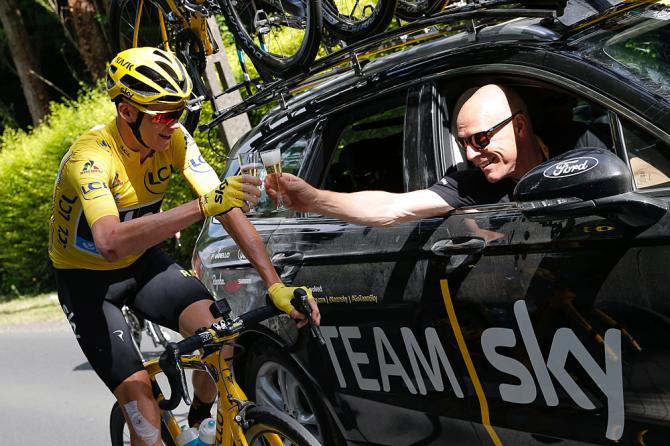
Despite the UKAD investigation and an inquiry into possible doping charges being started by a Parliamentary select commitee, Team Sky started an embattled 2017 season, even if on the road they found ample success including Michal Kwiatkowski's fine Milan-San Remo victory.
During the year, former rider Josh Edmondson admitted to violating the no-needle rule while on Team Sky, Gianni Moscon got into hot water for hurling racial epithets at fellow pro Kevin Reza during Tour de Romandie and for allegedly causing a crash involving Sebastian Reichenbach, who reported the racist incident.
Pressure from the select committee and UKAD built up on British Cycling to the point it had to separate itself from the prestigious team it helped form, asking Team Sky to move out of BC headquarters in Manchester.
Before the Tour, there were rumblings of Team Sky riders considering asking Brailsford to resign, but with the eventual support from Thomas and Froome, he stood fast. Froome went on to win the 2017 Tour de France and then turned around and won the Vuelta a España.
While the UKAD investigation into Wiggins and Team Sky ended in November without any anti-doping charges, the team's troubles were not over.
On December 13, reports emerged that Froome had been notified of an adverse analytical finding for too-high salbutamol levels on stage 18 of the Vuelta.
- March 16, 2017 - Former Team Sky rider admits violating no-needle rule
- April 29, 2017 - Moscon racially abuses Reza at Tour de Romandie
- June 6, 2017 - British Cycling asks Team Sky to leave offices at Manchester Velodrome
- June 6, 2017 - Exclusive: Team Sky riders consider asking Brailsford to resign
- July 23, 2017 - Chris Froome wins 2017 Tour de France
- September 10, 2017 - Chris Froome wins 2017 Vuelta a Espana
- September 28, 2017 - Team Sky report budget of £31 million in 2016
- November 15, 2017 - No doping charges for Wiggins, Team Sky and British Cycling over mystery package
- Froome Salbutamol Timeline - Timeline
- December 13, 2017 - Chris Froome returns adverse analytical finding for salbutamol
Froome's salbutamol case overshadowed the start to the 2018 season, but Team Sky powered on despite the controversy. Froome was allowed to start the Giro d'Italia with the case still pending since the UCI rules allowed him to keep racing while fighting doping charges.
Froome won the Giro d'Italia, and the case continued on unresolved right up to the eve of the Tour de France when the UCI summarily closed the case. Moscon found himself in trouble again, being ejected from the Tour after punching Frenchman Elie Gesbert in the face during stage 15.
The expulsion did not slow down Team Sky, and Geraint Thomas triumphed in the Tour de France over Tom Dumoulin, with Froome taking third. But Sky announced in December that it would end its sponsorship of the team.
- April 11, 2018 - Lappartient says Chris Froome's case will not be resolved before the Giro d'Italia
- May 25, 2018 - Froome solos to victory on stage 19 of the Giro d'Italia to take race lead
- May 27, 2018 - Chris Froome wins 2018 Giro d'Italia
- June 28, 2018 - Chris Froome: I have every right to race the Tour de France
- July 2, 2018 - UCI closes salbutamol case against Chris Froome
- July 22, 2018 - Gianni Moscon disqualified from Tour de France
- July 29, 2018 - Geraint Thomas wins 2018 Tour de France
- December 12, 2018 - Sky announces it will end sponsorship after 2019
With Team Sky departing, Brailsford got to work with high-level negotiations to replace the sponsor, not a simple task with a potential £40 million budget.
The Colombian company Ecopetrol was the first major rumour of a replacement, but Ineos won out, with rumours of the conglomerate signing up as the title sponsor effective May 1.
- February 14, 2019 - Ecopetrol linked with taking over Team Sky sponsorship
- February 19, 2019 - New Colombia-backed Team Sky very unlikely, says Dave Brailsford
- March 14, 2019 - Team Sky expected to become Team Ineos
- March 19, 2019 - Team Sky to become Team Ineos from May 1
